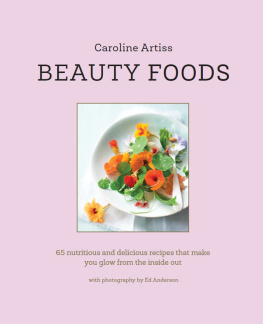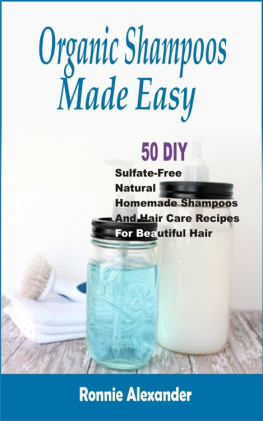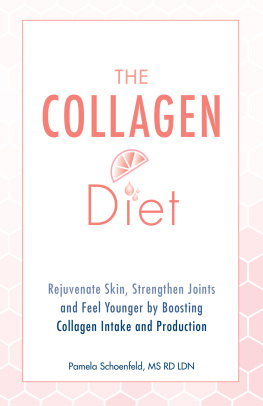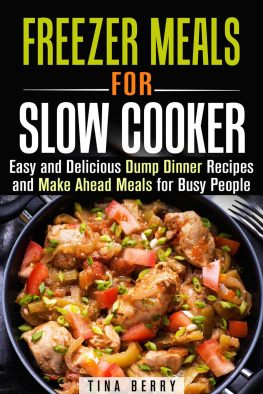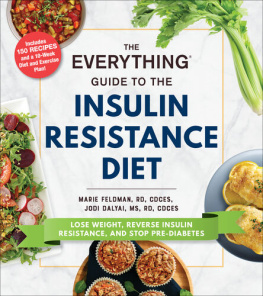EAT
TO STAY
YOUNG

INGREDIENTS & RECIPES
TO REJUVENATE YOUR BODY & MIND
GILL PAUL
NUTRITIONIST: KAREN SULLIVAN, ASET, VTCT, BSC
hamlyn
HOW TO USE THIS EBOOK
Select one of the chapters from the and you will be taken to a list of all the recipes covered in that chapter.
Alternatively, jump to the to browse recipes by ingredient.
Look out for linked text (which is in a different colour) throughout the ebook that you can select to help you navigate between related recipes.
CONTENTS

Young superfoods
Your key ingredients
Whats your problem?
At-a-glance problem solver
Putting it all together
Weekly menu planner
INTRODUCTION
There are lots of anti-ageing treatments, each more extreme than the other, on offer for those who are desperate enough to try them: bee sting and snake venom facials, covering yourself in leeches to detoxify the blood, bull-sperm applications for thinning hair and umpteen surgical procedures to lift, tuck and rearrange your face and body.
However, its only common sense that the most effective way to slow the ageing process is to treat the cells from within, giving them the nutrients they need to maintain their youthful functions and the best way to do that is through the food we eat.
How we age
The organs, bones and other tissues in our bodies go through a number of changes as we age. Cells begin to die more frequently and the mechanisms to replace them dont work as efficiently as they used to when we were younger.
Free radicals, the natural waste products of the process by which oxygen from the air we breathe and glucose from our food are used to produce energy, are one of the major causes of ageing. In most young people, free radicals are quickly mopped up and disposed of but, as we age, they are not dealt with so readily and an unhealthy lifestyle creates many more, which can kill off healthy cells or cause them to mutate into cancerous ones.
The rate at which we age
Part of what affects the individual rate at which we age is genetic our predisposition to disease and the outward signs of ageing come from our parents.
Part is simply due to the amount of wear and tear our bodies receive over time. But a significant part of how well we weather the ageing process is determined by the way we live our lives.
A poor diet, too much alcohol, sunbathing, smoking, stress, pollution: all of these factors hasten the degeneration of tissues in our bodies. A balanced diet that is packed full of delicious anti-ageing nutrients combined with a healthy lifestyle, on the other hand, will keep your body biologically younger for longer.

Your weight in middle age
Its easy for excess weight to creep up as the metabolism slows in middle age, particularly for people with sedentary lifestyles. Those who are plump tend to get fewer wrinkles than their lighter friends because there is a thicker layer of fat under the skin. However, there the advantages end because the strain inflicted on the heart and circulatory system, bones and joints, is likely to give those who are overweight more health problems overall.
Weight-loss diets in your 40s or 50s can be very ageing, both externally, with wrinkles and pouches of loose skin seemingly appearing overnight, and internally as bones, muscles and organs are leached of nutrients. The solution lies in eating a balanced diet containing all the anti-ageing superfoods, and leading an active life, with at least an hour of exercise a day. Aim to include both aerobic exercise (the kind that makes you out of breath, like running) and muscle-strengthening exercise (such as yoga, tai chi or Pilates).
How to eat to stay young
1. Choose whole foods!
Some modern processing methods remove a lot of the goodness from our foods and then replace it with sugars, preservatives and chemical additives. The most important rule for eating to look and feel younger is to buy natural, whole ingredients and cook or prepare them from scratch. That way you will be getting optimum benefits from every last mouthful.
2. Appreciate antioxidants
Foods containing the antioxidant vitamins A, C and E, the mineral selenium and a range of phytonutrients such as lycopene are the front-line defence against free radicals and form a core part of the Eat to Stay Young diet. All fruits and vegetables contain useful antioxidants and you should aim for a wide range of different types. A key tip is that the brighter the colours and the fresher they are, the better theyll do their job.
3. Opt for omegas
Omega-3 fatty acids come with several antiageing benefits. They help to keep blood cholesterol levels healthy, preventing heart disease; they keep joints supple and prevent inflammation; they keep our brains agile, preventing memory loss; and are natures own moisturizer for skin and hair. Youll find them in oily fish (sardines, salmon, mackerel and tuna are good sources), as well as nuts, seeds and olive oil.
4. Fill up with fibre
Our digestive systems can slow down as we age, leading to constipation and inefficient absorption of nutrients. Eating plenty of insoluble fibre (found in whole grains and vegetables) adds bulk to food waste and helps to speed its passage. Always choose unrefined carbs such as those in brown rice, wholegrain bread and cereals.
Soluble fibre is also important as it forms a kind of gel with water in the gut and slows down the absorption of sugars into the blood, so it makes us feel full for longer and prevents blood sugar fluctuations. The best sources of soluble fibre include oats, lentils, carrots and all kinds of berries.

5. Keep your bones strong
Making sure you get a good nights sleep makes everything look better the next day, and it is also vital for maintaining healthy blood pressure, balancing mood, regulating hormones, keeping a strong immune system and improving energy levels. Magnesium, calcium and certain amino acids aid restful sleep and youll find them in abundance in the recipes in this book.
6. Choose B vitamins
B vitamins support the nervous system and help us to relax and cope with stress, as well as maintaining a good metabolic rate and keeping energy levels up. B6 helps with mood and stops premature greying, while B12 helps to stop shrinkage of the brain. Including sources of protein in your diet is essential for providing B vitamins: lean meats, poultry, fish, eggs, beans and pulses and dairy products are all great for protein.
Next page


